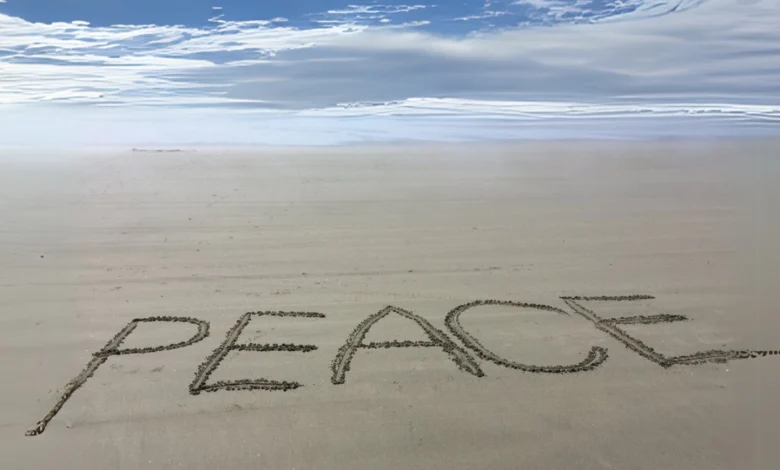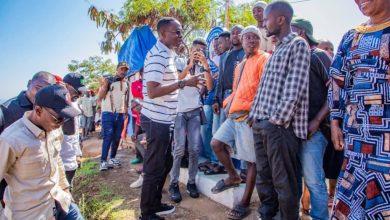‘Citizens play key role in building neighbourhood peace’

DAR ES SALAAM: NEIGHBOURHOOD peace remains a vital pillar for enabling people to live cooperatively, work freely and pursue development without fear.
No meaningful progress can be achieved where stability is lacking, and for this reason, the responsibility of safeguarding peace cannot be left to the government alone.
Members of the public also have a unique and indispensable role in strengthening the safety of their communities through small, consistent actions that can yield significant impact.
Everyone living in a neighbourhood including young people, parents, business owners, motorcycle taxi operators and community leaders shares the duty of ensuring that peace is nurtured and reinforced daily.
Across various parts of the country, positive changes are evident in areas where communities stand together to promote safety and unity.
This is why neighbourhood leaders, youths and multiple stakeholders continue to stress the importance of cultivating a culture of shared accountability.
In Mkimbizi Street in Iringa Municipality, Youth Leader Isack Kikoti notes that peace is not imported from elsewhere. It is built by the very people who reside in the area.
“Every young person has bourhood. The peace we are proud of does not come by chance but is a product of our daily decisions. When we work together, we create a safe, friendly and hopeful environment for everyone,” Mr Kikoti says.
His remarks underline the crucial role played by youth groups, often the largest population in residential areas, in maintaining neighbourhood peace.
Because young people move around more frequently, observe daily events and interact with diverse groups, they are well positioned to provide early warning signs of potential unrest.
Therefore, educating young people on the importance of reporting, integrity and steering clear of criminal activities is a key step toward strengthening community safety.
Beyond the youth, daily activity groups such as motorcycle taxi operators are also regarded as being on the front line in safeguarding neighbourhood peace.
In Msewe kwa Mangi area, a leader of motorcycle taxi rider group, Geofrey Mcharo stresses that motorcycle taxis are more than just a means of transport they form part of a wider network of neighbourhood information and vigilance.
“We motorcycle taxi operators see many things and interact with many people. If we take our role seriously, we can become important guardians. When we notice anything unusual, reporting early is our responsibility. The peace of the neighbourhood is our safety too,” Mr Mcharo says.
His remarks highlight the reality that keeping communities safe requires more eyes than those of government authorities alone. Individuals who spend long hours moving, such as motorcycle taxi operators, have a broad view of daily happenings.
When this group is encouraged to uphold ethics, respect the law, avoid criminal influences and report responsibly, the neighbourhood gains an added layer of protection.
ALSO READ: Analysts: Local leaders hold key to Tanzania’s peace
Community-based protection has become an essential strategy in many parts of the country.
This is why Community Police leaders continue to promote strong cooperation between citizens and law enforcement agencies.
The community policing leader of Msewe Street, Mustapha Musa, emphasises that no security system can function without citizen cooperation.
“Community policing is not just about the police. It is a system that involves citizens, so they see themselves as part of the security of their area. When we receive early information, we prevent crime before it happens. Citizens should not feel ashamed or afraid to report, their safety is our priority,” he says.
From a neighbourhood security perspective, the main responsibilities of citizens can be grouped into several key areas.
First, they must report early whenever they witness events or signs of potential unrest.
Small observations, such as unknown people wandering around the neighbourhood without reason, emerging minor conflicts, or inappropriate behaviour of some youths, can prevent major criminal incidents if reported promptly.
Second, they should participate in neighbourhood meetings and forums. These gatherings provide opportunities to discuss challenges, offer suggestions, and plan collective actions.
Citizens who participate contribute ideas, gain an understanding of minor neighbourhood rules, and become part of decision-making processes aimed at strengthening peace.
Third, they must follow laws and procedures. This is crucial because breaches of peace often begin with minor, overlooked issues.
When every citizen respects rules such as keeping the environment clean, respecting neighbours, avoiding unnecessary noise and refraining from excessive alcohol consumption that leads to conflicts, the neighbourhood remains peaceful.
Fourth, they should participate in voluntary activities such as night patrols, environmental clean-ups, health campaigns, or small infrastructure projects.
The presence of many people in these areas reduces opportunities for crime and strengthens community cohesion.
Fifth, citizens must avoid participating in or concealing criminal acts.
Communities face greater challenges when some people choose to hide relatives, friends, or neighbours involved in criminal activities.
This undermines the safety of the entire area. Citizens must recognise that concealing crime or defending offenders endangers their own lives and the lives of others.
Sixth, they must nurture children and youths. Families are the first school of safety.
Children raised on principles of integrity, respect and care for others grow into positive contributors to society.
Parents should monitor their children’s behaviour, know their friends and guide their families towards values that build peace. Neighbourhood peace results from collective actions.
Every statement by these three groups, youths, motorcycle taxi operators and Community Police, emphasises one point, security is everyone’s responsibility.
Without accountable citizens, no sustainable progress can be achieved. When citizens cooperate, report promptly, make wise decisions and prioritise the interests of their community, they create a strong, safe and reliable neighbourhood for everyone.
Therefore, every citizen should ask themselves, what is my contribution to ensuring that my neighbourhood is a safe place to live, work and raise a family?
Acting on this question can transform an entire neighbourhood into a place of lasting peace.





